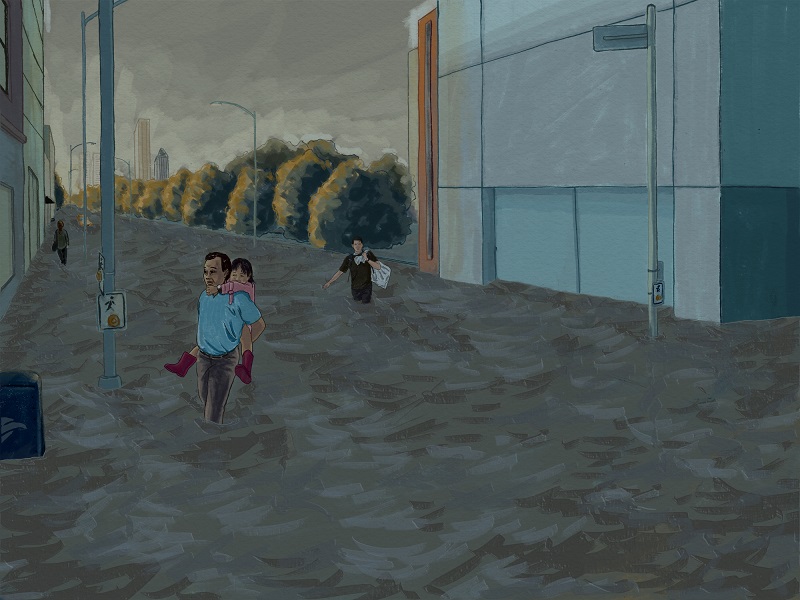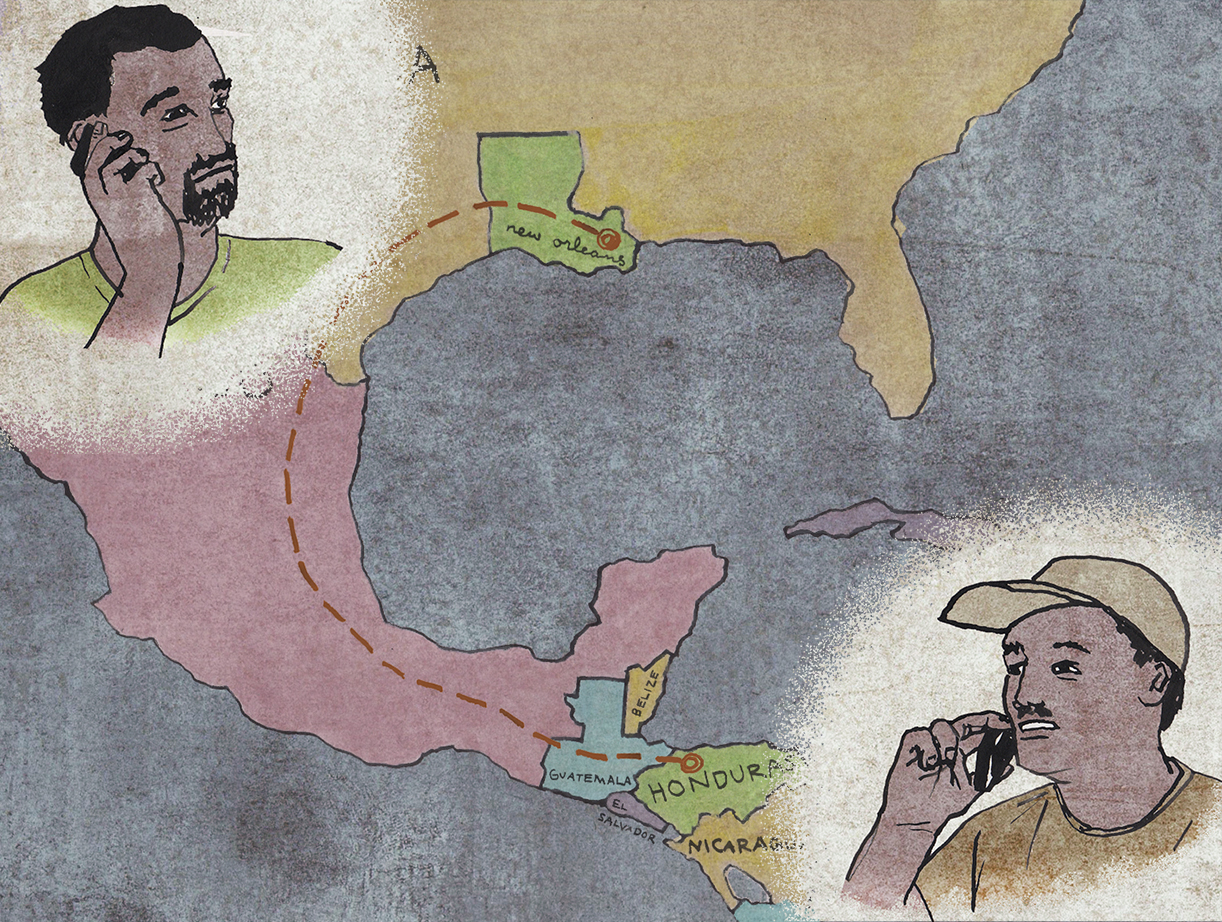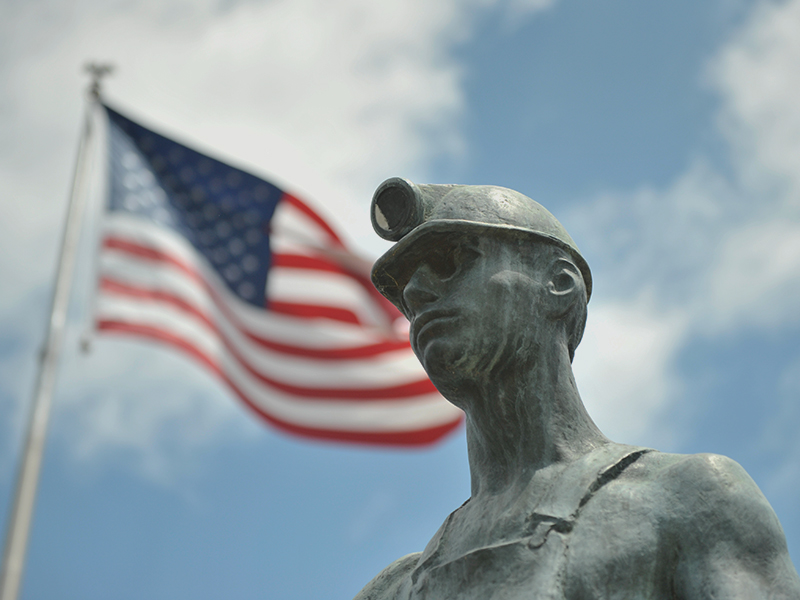The trouble with the world is it's all connected. There is no here or there. It's all here, and we fool ourselves into believing what goes on over the fence doesn't affect us. Take, for example, the unlikely relationship of Alaska's glaciers to Cartagena, Colombia. A relationship illuminated by the equally unlikely intervention of an alleged CIA pilot who loved Sarah Palin and hated Barack Obama more vehemently the more he swilled icy Colombian beer and mocked the locals for believing in global warming. Turns out, the glaciers were right there, not five miles from Gabriel Garcia Marquez's house by the seawall.
When Alaskan guides take you on their catamarans into Glacier Bay, it's a stunning journey into those fjords. Small icebergs surround you. Waterfalls plunge from sere cliffs. Sea otters and if you're lucky an orca might appear. Vast astonishments of seabirds, like kittiwakes, launch from the rocks beside the cataracts, looking like garrulous snow squalls. It's all transcendent until you come around the bend and see the brown chasms where the glaciers used to be.
The 1,375 square mile bay used to house the Mother of all Glaciers--The Grand Pacific. It was once 4,000 feet thick and twenty miles wide. But in the last 200 years, it has retreated 65 miles. Ice rivers it left behind are the beloved tourist glacier sight-seeing destinations around the bayu.
Although you can still park a boat near a great wall of ice that calves and drops thunderous spires of ice into the sea before you, the wall has receded. And you can see where an island stands alone--a bit of rock that was left as the ice shelf races five miles up the canyon in its vanishing.
The catamaran crew fishes slivers of ice wall out of the sea with nets. They rinse it off and fill buckets with it. Clear slivers of ancient ice, full of bubbles holding prehistoric air. They put this ice in your drinks. So you can taste the glaciers before they're gone.
A crewman tells me: "You're drinking time."
It is a strangely melancholy communion.
Suddenly, we are in Cartagena.
It must be the icy drinks that put me in mind of the glaciers. Alaska does not look anything like Colombia--yet. As hot as Alaskans warn us it is getting, it will still take a while for the Great North to get steamy like this. I hope. But the drinks are cold as the glacial slivers, and they are everywhere. Joy and delicious imbibements are everywhere to be found. In Cartagena, the best bookstores are also wine and beer bars, and the bookseller pours you a michelada as you sit at the table inside looking at poetry books. One night, Garcia Marquez's older brother comes in and sits with us and enjoys a beer as he starts to tell stories about his famed sibling. It is, by the way, Gabriel Garcia Marquez’s birthday. Colombians understand these small miracles to be their daily bread.
For example, the tour bus driver drives off the main route to park near the Garcia Marquez house because I am an "Escritor Americano." Just so we can see the door. And drink cold beer.
Enter The Ugly American.
He is a rangy character in aviator shades with a blonde woman who looks like she has jeans more expensive than every bit of clothing I own. She keeps telling him she wants emeralds, and he keeps ignoring her, drinking beers, and telling some other dude all about his Floridian waterfront spread and his big-ass boat. It sounds like a brand-name: The Big-Ass Cabin Cruiser. And hell no, goddamn hurricanes haven't gotten any worse down there. He looks like he's in his mid-fifties. She really wants that emerald--the more he ignores her, the more she calls him "Daddy." We are trapped in the tour bus listening to him boast.
Suddenly, in between picturesque stops, the other dude finds a way to separate himself from Daddy. Perhaps because Daddy, now firmly buzzed, is starting to make interesting claims for himself. How he's a pilot of heavy aircraft for an undisclosed organization. Flying ordnance and classified cargo into such hot zones as Kabul. He's talking steep angles of approach and diversion maneuvers to avoid ground-to-air fire. It seems that if this were a John le Carre novel, the next sound would be the crack and hiss of a silenced sniper round coming through the window. But the only pfft! sound is the cracking of another beer.
And of course, we pull up to an emerald emporium--this whole tour has been designed to off-load us at the doors of canny salesmen. Daddy's paramour jumps out and he urges her to control her spending. He casts around for anyone who will listen--that, apparently, being me--and he drops the covert Secret Government bombshell. President Obama, he announces, is a notorious gay party-boy. The Secret Service delivers lovers to him all night. And, he leers, everyone in Washington knows he is also a cocaine addict! Slurp. Soft beer belch.
All passengers on the Bus of Fools climb back aboard. I have moved a few seats back from Daddy. His wife has bought emeralds on chains. "Whatever," he says. And then, the Revelation comes.
Our tour guide is a middle-aged woman who has worked in tourism since the narco danger abated. As she directs the driver to the coast, she tells us that, for the first time in Cartagena's history, the ocean is rushing inland and flooding the low-lying neighborhood where she grew up.
"Drink the Kool-Aid," Daddy says. "Oh boo-hoo. Global warming, right? Is that what you think? Bullshit. There's no such thing as global warming--believe me."
And that's when it hits me.
It catches in my throat.
I know where the glaciers went.
The Alaskan glaciers are here, at the equator, running up and over the beaches of Colombia.
Luis Urrea is an award winning novelist, essayist and poet.
Glacier, Cartagena skyline and ice cube photos by Luis Urrea. Cartagena flooding photo by AP.












 to WBEZ
to WBEZ
